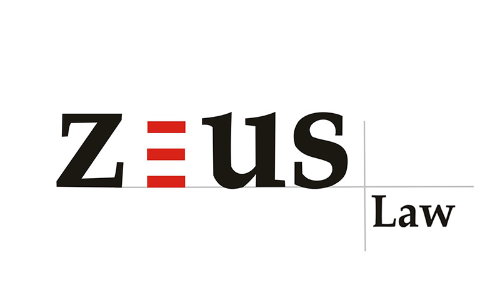Law Firm Articles
Artificial Intelligence And The Law: Navigating The Legal Landscape In The Age Of Artificial Intelligence
Artificial Intelligence, commonly referred to as AI, refers to a technology engineered to carry out tasks that usually require human intelligence. It revolves around creating intelligent applications capable of simulating human-like cognitive functions, including problem-solving, reasoning, learning, and perception. AI systems make use of algorithms and data to process information and make informed decisions.AI can be broadly categorized into two main types:1. Narrow or Weak AI - These AI...
GIFT City IFSC Platform For Fintech Startups & Sandbox Initiatives & Relaxation Under Companies Act
The Government of India, with a view to establish a globally competitive financial platform offering a full range of international financial services at the regional and global level, has approved the setting up of International Financial Services Centre (IFSC) in Special Economic Zones across the country and the very first IFSC of India has been established in the Gujrat International Finance Tec-City (GIFT City) at Gandhinagar in the state of Gujarat. It is envisioned that the IFSC at Gift...
Supreme Court Revives Hope For Homebuyers In Subvention Matter
In the dynamic landscape of real estate transactions, subvention cases have gained prominence due to their complex nature and far-reaching implications. However, the arrangement was that the homebuyers had to pay EMIs once possession is given and till that time the builder shall pay the EMIs to the banks or NBFCs. These cases often involve builders defaulting on Pre-Equated Monthly Income (EMI) payments, leaving homebuyers in a precarious position. One such controversy unfolded, leading to a...
Supreme Court's Verdict On The Constitutionality Of The Provisions Of Personal Guarantors Under The IBC
The constitutional validity of the provisions pertaining to personal guarantors in Part III of the Insolvency and Bankruptcy Code, 2016 (“Code”) were recently challenged in a series of 384 writ petitions filed under Article 32 of the Constitution of India (“the Constitution”). The vires of Sections 95 to 100 of the Code (“impugned provisions”) was challenged, inter alia, on the ground that they are violative of the principles of natural justice on the ground that a personal guarantor was...
Late Claims In Liquidation: Analysing The Judicial Divergence
Among myriad litigations faced by a liquidator during the liquidation process of a corporate debtor, under the Insolvency and Bankruptcy Code, 2016 (Code), is a genre of challenges against the rejection of claims of creditors by the liquidator. Majority of these complain of rejection of claim on account of delay in their submission with the liquidator, without verification on merits. Since, a liquidator is not empowered to verify a claim submitted beyond thirty (30) days from the liquidation...
Deadline: A Crucial Lesson To Reducing Pending Case Load
Last year a report revealed NCLT courts' time to resolution at 643 days (nearly 21 months) as opposed to the 270-day deadline (9 months). By definition, Insolvency and Bankruptcy Courts are expected to fast-track a resolution process therefore providing a speedier remedy to an insolvency process. Unfortunately, the trend in the NCLT is not very different than India's traditional courtrooms where pending case-loads has invited sharp criticism.According to India's national judicial data grid, 4.46...
Navigating Compliances On Significant Beneficial Ownership By Limited Liability Partnerships
Ministry of Corporate Affairs ('MCA') vide notification dated October 27, 2023 introduced the Limited Liability Amended Partnership (Third Amendment) Rules, 2023 (“LLP Amendment Rules, 2023”) modifying the existing Limited Liability Partnership Rules, 2009 to strengthen the mechanism for identifying individuals having beneficial interest in LLPs. Under the LLP Amendment Rules, 2023 every LLP is responsible to maintain the register of partners in Form 4A, with particulars such as the personal...
Indian Arbitration System On Path To Global Recognition And Economic Growth
Indian Arbitration System On Path To Global Recognition And Economic GrowthLast year, the former Chief Justice Of India, NV Ramana, highlighted the significance of a robust arbitration system to India's economy. According to him, such a system could be a secret ingredient to getting an investor-friendly tag. More recently, Claudia Salomon, President of the International Court of Arbitration, emphasized on the evolving arbitration landscape and how it facilitated better business. India's...
Directors, Deadlocks And Disqualifications Under The Companies Act, 2013
Directors, Deadlocks And Disqualifications Under The Companies Act, 2013Imagine a world where companies possess their own unique identities, are capable of acquiring property, taking legal actions, and existing indefinitely regardless of the people working within them. Welcome to the fascinating world of corporate law, where companies are conferred with a separate legal personality. The members of a company may come and go, but the company goes on forever until it is wound up or dissolved. Being...
Compulsory Dematerialization Of Securities – Impact On Business Environment
On October 27, 2023, the Ministry of Corporate Affairs issued the Companies (Prospectus and Allotment of Securities) (“PAS”) Second Amendment Rules, 2023, amending the Companies (PAS) Rules, 2014. These amended provisions were officially enforced on the same date i.e., October 27, 2023.The revised PAS Rules now require all private companies, except for small companies to adhere to specified timelines. These companies must issue securities exclusively in dematerialized form; andfacilitate the...
Supreme Court Rules On Binding Non-Signatories To Arbitration Proceedings: Paving Way For Consolidation And Composite Reference
It is not uncommon in today's commercial landscape for disputes to arise from multiple contracts executed between different parties forming part of the same commercial transaction for the completion of a common project.On 06.12.2023, a Constitution Bench of the Supreme Court of India passed its judgment in the case of Cox & Kings Ltd. vs. SAP India Pvt. Ltd[1]. The Supreme Court, in this landmark judgment, decided the reference made to them in Cox and Kings Ltd. vs. Sap India Pvt. Ltd.,[2]...
Stamped Out Or Not: Finality To The Issue Of Unstamped Arbitration Agreement
On December 13, 2023 a seven judge bench of the Supreme Court in In Re: Interplay between Arbitration Agreements under the Arbitration And Conciliation Act, 1996 and the Indian Stamp Act, 1899[1], unanimously ruled on the issue surrounding the admissibility of unstamped or insufficiently stamped instrument in evidence, which arose in the context of three statues - the Arbitration and Conciliation Act 1996 (“Arbitration Act”), the Indian Stamp Act 1899 (“Stamp Act”), and the Indian Contract Act...







